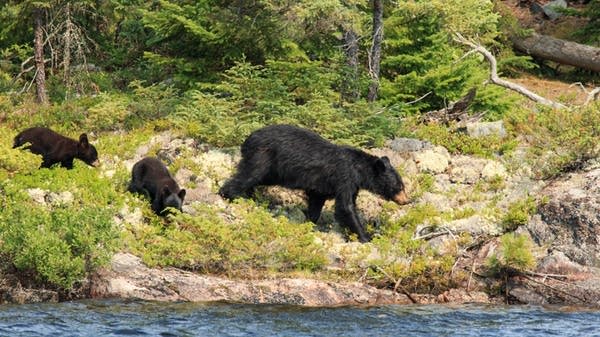Forest Service toughens rules on food storage in Boundary Waters to keep it away from bears

Gary Fiedler saw this black bear family on three separate occasions eating blueberries in Quetico Provincial Park. This photo was take on day 123 of his seven-month Boundary Waters trip.
Courtesy of Gary L. Fiedler
Go Deeper.
Create an account or log in to save stories.
Like this?
Thanks for liking this story! We have added it to a list of your favorite stories.


